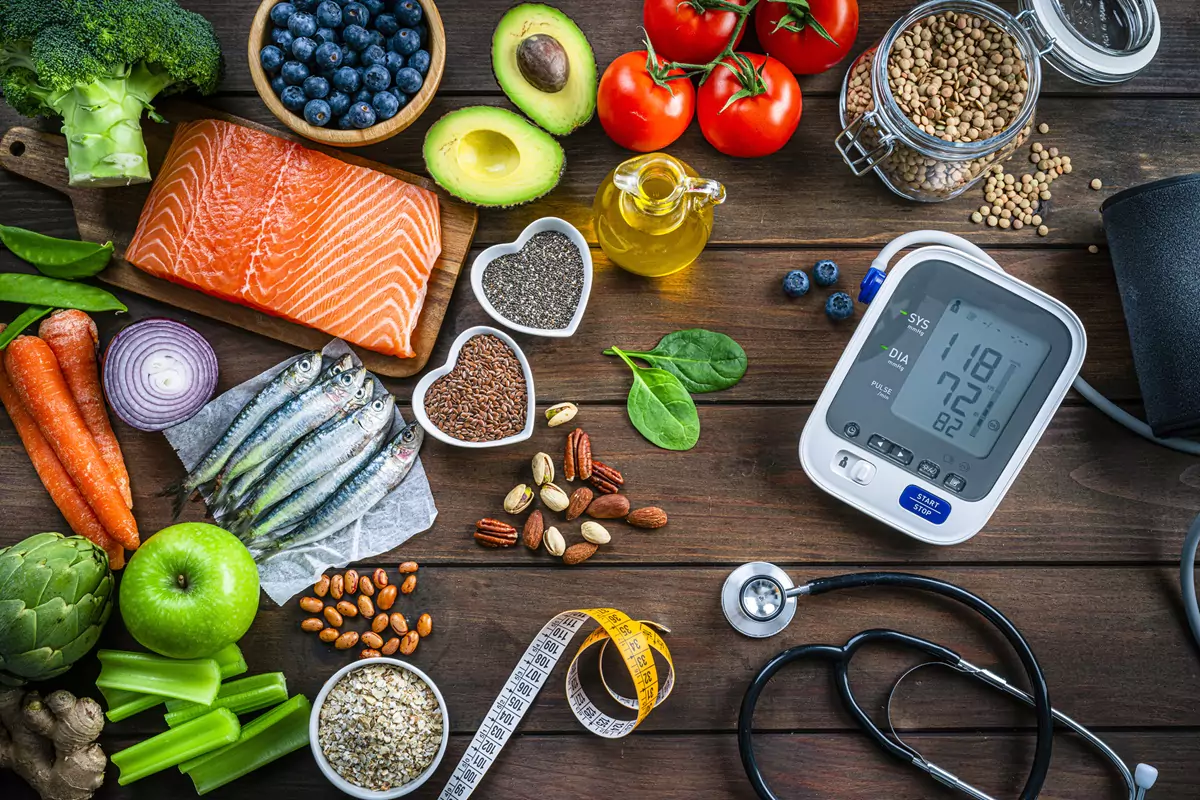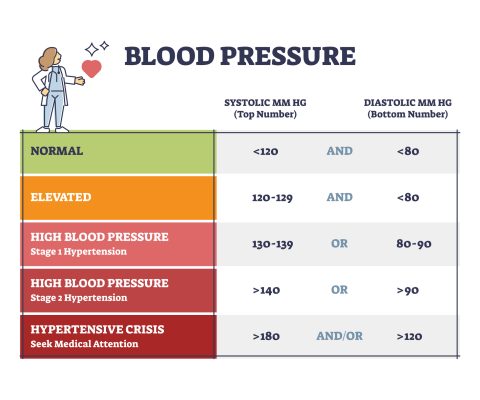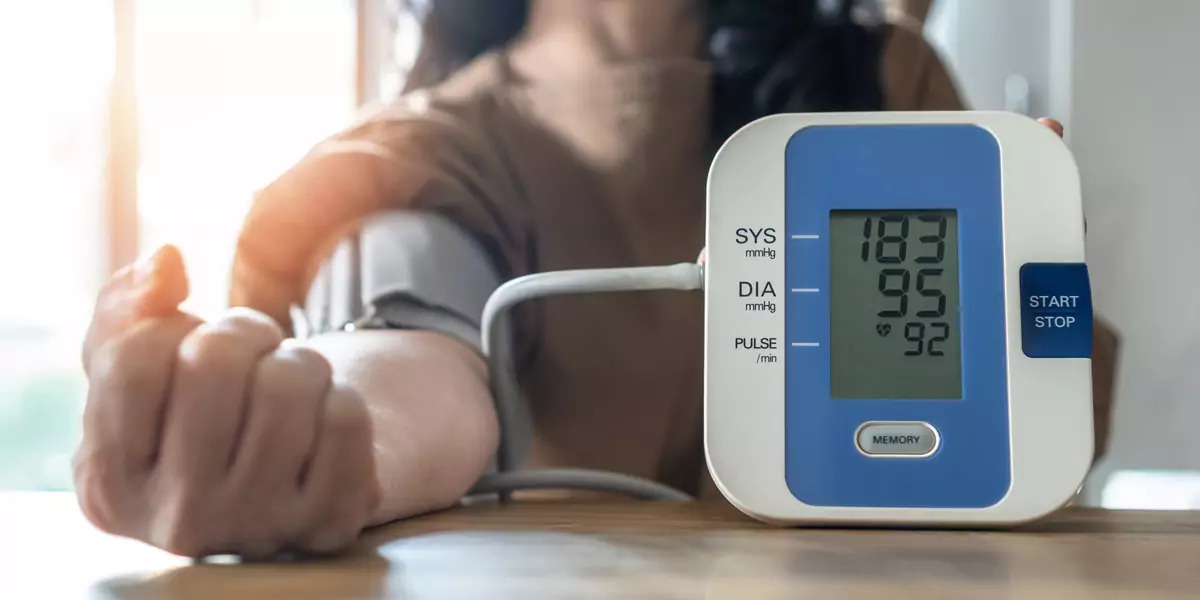
UP TO 40% OFF SITEWIDE






Natural Ways to Manage Blood Pressure: A Comprehensive Guide


Table of Contents
- Understanding Blood Pressure
- The "Silent Killer" and Its Risk Factors
- Dietary Approaches to Management
- 1. Sodium Regulation
- 2. Reducing Processed Foods
- 3. The DASH Diet
- Lifestyle Modifications
- Physical Activity and Weight Management
- Stress Management Through Mindfulness
- Smoking Cessation
- Integrative Medicine: Herbs and Supplements
- Key Botanicals
- Comprehensive Support with SUGARMD
- Conclusion
- About The Author
For many patients, managing high blood pressure can feel like an unending cycle of medications and temporary fixes. In recent years, medical understanding has shifted toward a more holistic view.
This guide covers practical, evidence-backed ways to support healthy blood pressure, including daily habits, diet, and herbal interventions. Understanding the mechanics of systolic and diastolic pressure is the first step toward managing your cardiovascular health.
Understanding Blood Pressure
Blood pressure refers to the force of blood pushing against the walls of your arteries. It is measured using two numbers:
- Systolic blood pressure: the pressure when the heart contracts.
- Diastolic blood pressure: the pressure when the heart relaxes between beats.
The chart below outlines standard blood pressure ranges, showing how systolic and diastolic values determine normal, elevated, and hypertensive categories.
Both values matter. High blood pressure is more than just a statistic; it is a leading cause of heart attacks, strokes, and premature death worldwide. In 2024 alone, an estimated 1.4 billion adults aged 30–79 years (nearly one-third of this age group!) were living with hypertension.
Despite its prevalence, nearly 44% remain unaware they have the condition, and only about 23% have their blood pressure adequately controlled. Once considered a disease of older age, hypertension is now rising across all demographics.
The "Silent Killer" and Its Risk Factors
Hypertension often develops without obvious symptoms, earning it the label “the silent killer.” Millions of people live with elevated blood pressure without realizing it.
The rise in cases is largely driven by modern lifestyle factors, including:
- Diets high in processed and packaged foods
- Lack of physical activity
- Chronic stress
- Genetic predisposition

Dietary Approaches to Management
Diet has a direct and measurable impact on blood pressure.
1. Sodium Regulation
Excess sodium causes the body to retain fluid, increasing strain on the heart and blood vessels.
The recommended limit of sodium intake for patients diagnosed with high blood pressure is around 2000 mg per day, as per the World Health Organization.
A reality check? One restaurant or fast-food place can exceed this amount.
And the good news? Even modest reductions in sodium intake have been shown to lower blood pressure and reduce cardiovascular risk.
2. Reducing Processed Foods
Processed foods are loaded with sodium, added sugar, and unhealthy fats that exacerbate hypertension. Replacing them with whole, natural ingredients, such as fresh vegetables, fruits, legumes, and lean proteins, can significantly support heart health.
Cooking simple meals at home does not require extreme restrictions. It only shifts control back to you.
3. The DASH Diet
The DASH (Dietary Approaches to Stop Hypertension) diet is one of the most well-researched eating patterns for blood pressure control. It emphasizes:
-
Lower sodium intake
-
High consumption of fruits and vegetables.
-
Lean protein sources.
Participants in studies utilizing the DASH diet demonstrated significant reductions in blood pressure levels.
Lifestyle Modifications
Daily habits play an equally important role in blood pressure regulation as diet.
Physical Activity and Weight Management
Carrying excess weight increases the workload on the heart. Research shows that regular exercise can lower blood pressure by about 4–10 mm Hg systolic and 5–8 mm Hg diastolic, with improvements often seen within one to three months.
General Recommendation: Aim for at least 30 minutes of moderate aerobic activity most days of the week (can be broken into shorter sessions).
Remember, consistency matters more than intensity. This supports weight control and helps keep both systolic and diastolic pressure in a healthier range.
Stress Management Through Mindfulness
Chronic stress is a major and often overlooked driver of high blood pressure. Regular yoga and meditation help activate the body’s relaxation response, slowing heart rate, improving blood flow, and easing pressure on blood vessels and muscles. Even short, consistent sessions can support healthier blood pressure levels over time.
Smoking Cessation
Smoking triggers short-term spikes in blood pressure and heart rate that last for about 20 minutes, while long-term use stiffens and narrows blood vessels, making hypertension harder to control, even with medication.
Quitting allows blood vessels to recover, stabilizes blood pressure, and improves the impact of other lifestyle changes.
Integrative Medicine: Herbs and Supplements
While traditional medicine focuses on prescription pharmacology, certain herbs have long been studied for their role in supporting healthy blood pressure.
Key Botanicals
-
Garlic: Supports blood vessel function
-
Hawthorn: Traditionally used to strengthen heart function
-
Celery seed: Contains compounds that may help reduce vascular tension
These herbs work by reducing blood vessel constriction and helping blood vessels relax.
Comprehensive Support with SUGARMD
For a more targeted approach, formulations like SugarMD Blood Pressure Support combine multiple botanicals into a single formulation designed to support cardiovascular health.
-
Evidence-based ingredients selected for heart and vascular support
-
Metabolic support, including weight management and metabolism assistance, to address the root cause of hypertension.
-
Holistic focus that centers on natural ingredients rather than synthetic interventions.
Conclusion
Managing hypertension is not about short-term symptom control. It requires reducing sodium intake, prioritizing whole foods, staying physically active, managing stress, and, when appropriate, using well-researched natural supplements to support long-term cardiovascular health.
The truth is, a balanced life is a reality achieved through conscious, daily decisions.
About The Author
Meet Dr. Ahmet Ergin a highly skilled and dedicated endocrinologist with a passion for diabetes care. Dr. Ergin earned his medical degree with honors from Marmara University in Istanbul. He completed internal medicine residency and endocrinology fellowship at Cleveland Clinic.
Dr. Ergin is board-certified in Internal Medicine, Endocrinology, Diabetes and Metabolism due to his vast medical expertise. He's a certified diabetes educator, author of "The Ultimate Diabetes Book," and founder of "the SugarMD YouTube channel."
Dr. Ergin offers exceptional diabetes care to his patients in Port Saint Lucie, FL, helping them manage effectively. Disclaimer: These statements have not been evaluated by the Food and Drug Administration. Information on this website isn’t intended to treat, cure or prevent any disease. Discuss with your doctor and do not self-treat.
Written By Dr. Ahmet Ergin
466 total articles
Meet Dr. Ahmet Ergin, a highly skilled and dedicated endocrinologist with a passion for diabetes care. Dr. Ergin earned his medical degree with honors from Marmara University in Istanbul. He completed internal medicine residency and endocrinology fellowship at Cleveland Clinic. Dr. Ergin is board-certified in Internal Medicine, Endocrinology, Diabetes, and Metabolism due to his vast medical expertise. He's a certified diabetes educator, author of “The Ultimate Diabetes Book,” and founder of “the SugarMD YouTube channel.” Dr. Ergin offers exceptional diabetes care to his patients in Port Saint Lucie, FL, helping them manage effectively. For a closer look into his insights and experiences, connect with Dr. Ahmet Ergin on LinkedIn, Instagram, and YouTube.”
Disclaimer: These statements have not been evaluated by the Food and Drug Administration. Information on this website isn't intended to treat, cure or prevent any disease. Discuss with your doctor and do not self-treat.
Products









